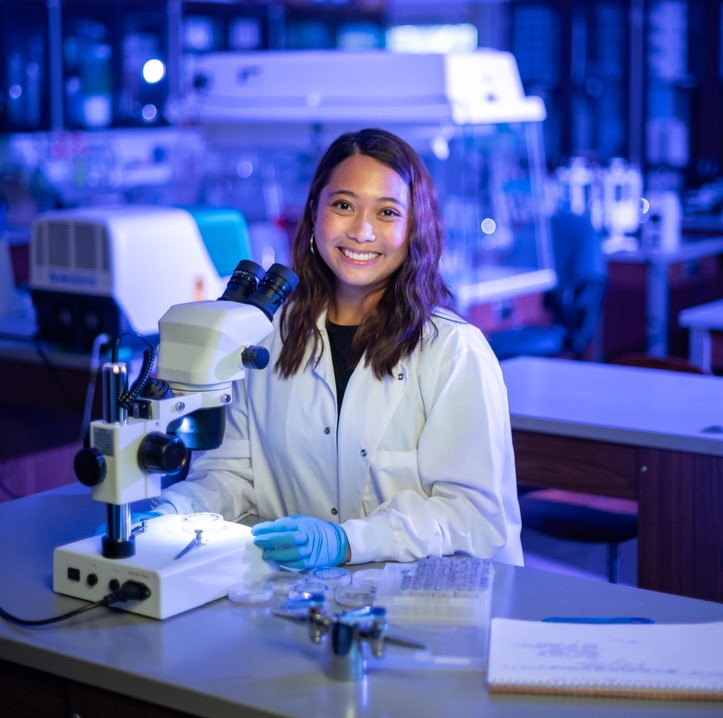Department of Biological Sciences Course Offerings

The MS in Biology is designed for students who wish to transition from an undergraduate degree to the workforce in professional science or for students who desire additional research experience before entering a postgraduate degree program. Several tracks of study are available based on the faculty’s strengths in cellular/molecular biology, plant science, ecology, and microbiology. The curriculum is composed of several core courses within a discipline followed by courses selected by the student’s individual needs or interest.
Our faculty conducts active research in general ecology, evolutionary biology, microbial ecology, molecular genetics, conservation biology, restoration ecology, cell biology, and plant pathology.
The department maintains high expectations and standards for professional conduct and productivity which prepare students to meet their specific goals.
Mission Statement
The Master’s Degree Program offered by the Department of Biological Sciences at CSU Chico is designed to help students prepare for a professional career in science. Training in research expertise is emphasized through a field- or laboratory-based thesis project.
Program goals
Following the course of training in the M.S. in Biological Sciences, students should be able to:
- Demonstrate, orally and in writing, knowledge of historical and current literature within their chosen field of study (e.g., ecology, cell & molecular biology, botany, microbiology, etc.) including foundational material as well as current directions within the larger field. Students should be able to articulate how their contributions fit within a larger framework of scientific knowledge and investigation.
- Demonstrate, orally and in writing, a basic understanding of experimental design, methods, and data analyses pertinent to their research area, including hypothesis construction and relevant experimental controls.
- Develop and execute a scientific investigation that represents a substantive contribution to their discipline.
- Communicate the results of their investigation orally and in writing using an appropriate professional style.
